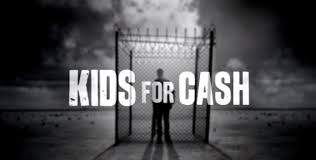Hi again!
With my time as a summer research assistant coming to an end, I’ve been reflecting on how my time in the research lab fits into my plan after college. So then, your first question is probably…
What is your plan after college?
Directly after college I plan on going to law school, though I’m not sure what kind of law I want to practice. I’ve been told that you don’t truly know what area of law you may want to go into until you’ve tried several types through different internships. Though I don’t know exactly what I will end up doing with my law degree, I do know that I want to use it as a tool to help others. A law degree is the key to navigate the justice system, and gives lawyers the ability to make a difference in others’ lives both on the individual level (e.g. representing a client in the courtroom) or more generally through reform efforts. I hope to use my degree to help a cause or person that I believe in.
During my time at Tulane one of the issues that has become most important to me is reform of the education system, especially in New Orleans. It began when I started tutoring for various organizations throughout New Orleans. Many of the students had the same complaints about the way that their schools were run, and as I began to see more of the flaws in the system I started getting more involved – I now run my own tutoring organization. I also began coordinating with other organizations on campus to help bring speakers to campus about the state of the education system. This past year we held an event about the school-to-prison pipeline, during which we screened the documentary “Kids for Cash,” and had a panel of prominent local voices in education and prison reform come and discuss their perspective (if you haven’t seen the movie I’ve included a link to the website below!). That event really stuck with me because it showed the problems in our education and legal system, and the reform that both systems desperately need. It motivated me to keep involving myself in these issues now, and reminded me of all the good I can do with a law degree.
 http://kidsforcashthemovie.com/
http://kidsforcashthemovie.com/
So how does all of this relate to social psychology and your internship?
The thing that I think fascinates me about something like “Kids for Cash” or educational reform, is that I see it as an intersection between science and law. I believe that science, especially social psychology, is the lens through which we should view most societal issues. The data and conclusions of scientific research are the best tools that we have for objectively understanding society-wide problems. Further, this research allows for the introduction and evaluation of different possible solutions. And thus, my intention as a lawyer is to use not only case law but also current scientific research as sources of information and as the foundation of my position on the cases I’m involved in.
The research that I’m doing this summer is a great example of how social psychology research has real-world and legal applications. The research project I have spent much of my summer working on addresses problem that members of racial minorities are relatively unlikely to report instances of racial discrimination in the workplace. The results of this research will identify one potential root cause of this lack of reporting, which in turn leads to possible solutions. In order to solve a problem, you must first understand the problem itself and the underlying causes, both of which can be highly complex. Science helps figure out problems and posit solutions in an objective way, which those in the legal system should use as a foundation for their reform efforts.

My work this summer has taught me how to more fully understand how the process of building research works. I better understand how to read and evaluate scientific articles and how to find articles relevant to my topic. I’ve also learned how to compile various scientific articles on the same topic into a persuasive argument that supports a thesis. These skills will be invaluable to me if I want to use scientific findings as my foundation for cases or reform efforts I may be involved in in the future. My work this summer has helped me fully understand the social-psychological perspective from which I want to see legal reform, and how to use a body of research as a tool for change.
Until next time,
Maryann
